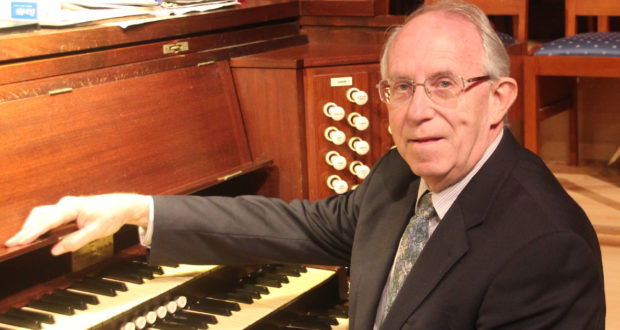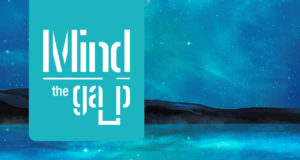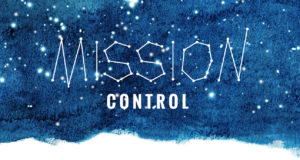This year Dr Steven Nisbet celebrates 40 years as organist and Director of Music at Saint Andrew’s Uniting Church, Brisbane. Steven was president of the Organ Society of Queensland for 26 years. He retired from Griffith University in 2013 as a Senior Lecturer in Mathematics Education.
What skills does a church organist need?
Firstly, there are the technical skills of being an organist, which include a keyboard technique different to normal piano technique, technique for playing the pedalboard (which has two-and-a-half octaves), and selecting stops that give the desired tone colour, volume and brightness.
Secondly, there are the skills specific to a church organist. 1 Corinthians 14:15 says “I will sing with the spirit and with the understanding also”. The most important skill is to accompany congregational hymns and songs—being sensitive to the meaning of the words, playing the correct harmony and rhythm, and leading the singing with clarity.
The organist needs to be able to adapt to the spirit underlying each hymn, from the stirring “Lift high the cross” to reflective hymns such as “An upper room did our Lord prepare” and the hymns which challenge us to act appropriately such as “A new commandment I give unto you”. The biggest challenge is putting it all together—technically and musically—to make it part of worship.
What role can organs play in contemporary worship?
The organ can play a significant role in worship today, whether the worship is traditional or contemporary, because it is such a versatile instrument. It is the most appropriate instrument to lead congregational singing of hymns and songs because it has such a wide range of frequencies—deep sounding bass notes which provide a sure foundation for singing, and high sounding notes to provide clarity—and a wide range of tone colours; bright tone colours to accompany hymns of praise and gentle tone colours to accompany reflective hymns.
How has organ music and performance changed?
Over the last 40 years, composers have continued to write organ music which is appropriate to worship. But the greatest change has been a significant evolution of technology which has brought digital organs to the fore—organs which authentically reproduce the sounds of great pipe organs around the world. A good organ is now more affordable for congregations.
Is there a particular piece that embodies everything you love about organ music?
I can nominate two special pieces—one is a sublime Bach Chorale Prelude “O mankind, mourn your sins, for which Christ came to earth” which I play every Good Friday; the other is a rousing French piece “Toccata in B minor” by Eugene Gigout, which I use once a year as a recessional.
 JourneyOnline
JourneyOnline







